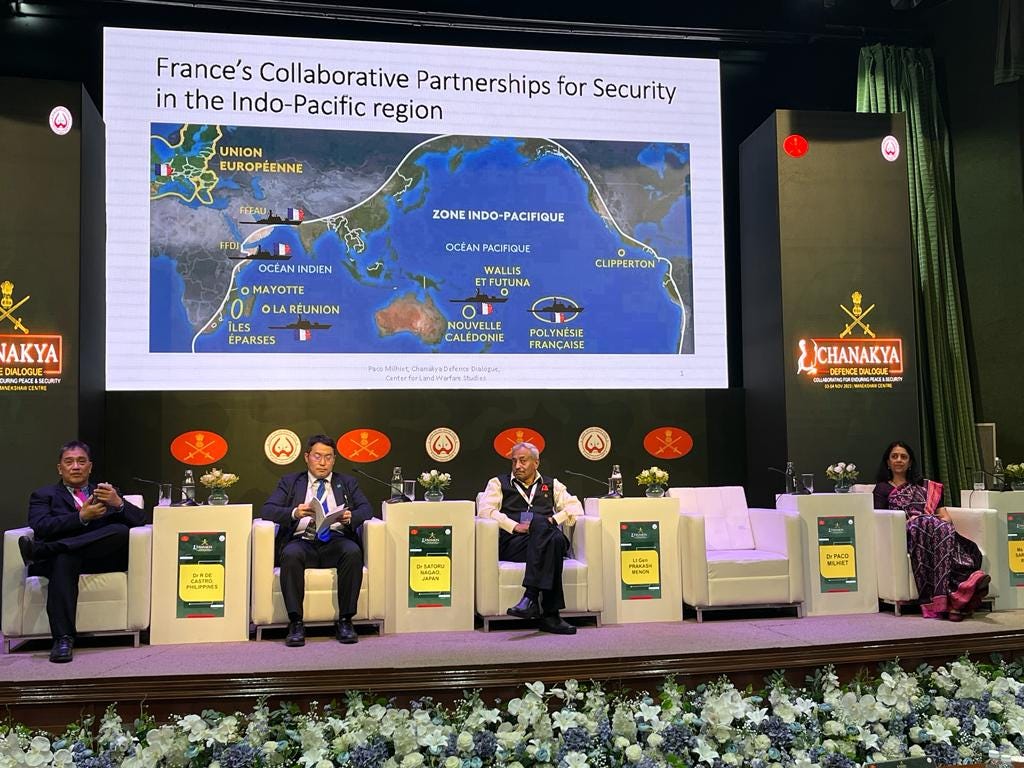Pakistan: A Study in Contradictions
In his comically brilliant novel ‘A Case of Exploding Mangoes’ (2008), Mohammed Hanif has an exchange between the Islamabad CIA station chief Chuck Coogan and General Akhtar Abdur Rahman on the violently eccentric propensities of General Zia-ul-Haq, which culminates in Gen Rahman telling the American spy that Zia won’t stop the war (“liberating Afghanistan”) until he wins the Nobel Peace Prize.
A peace prize for war.
Very few writers have summarised the often schizophrenic nature of the Pakistani state in one line as Hanif has in his Commonwealth First Book Prize-winning effort.
In a country that has more contradictions than philosopher Slavoj Žižek would care to explain, how should policy wonks from India navigate? Indeed, in the decade and a half from when Pakistan has gone from being hyphenated with India to being banished to diplomatic and economic obscurity, how should we even look at it?
Many such questions were posed at Takshashila’s Network for Advanced Study of Pakistan (NASP) Fellowship workshop last weekend in Bangalore.
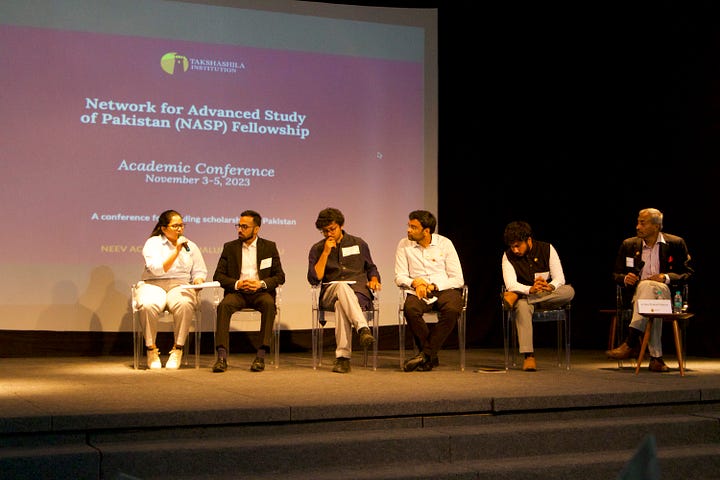
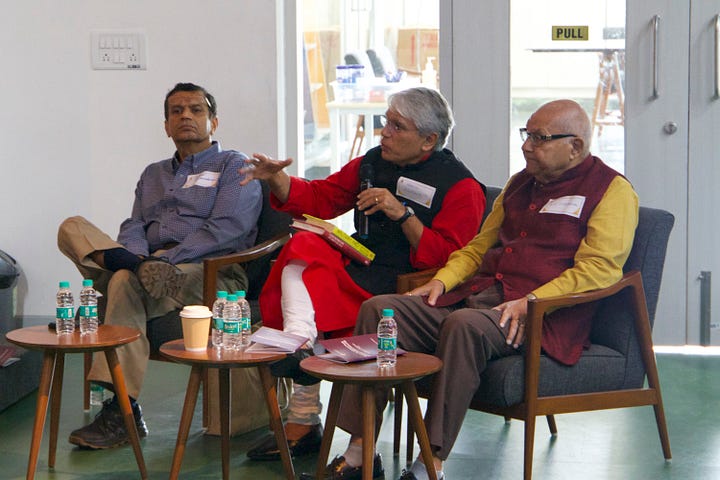
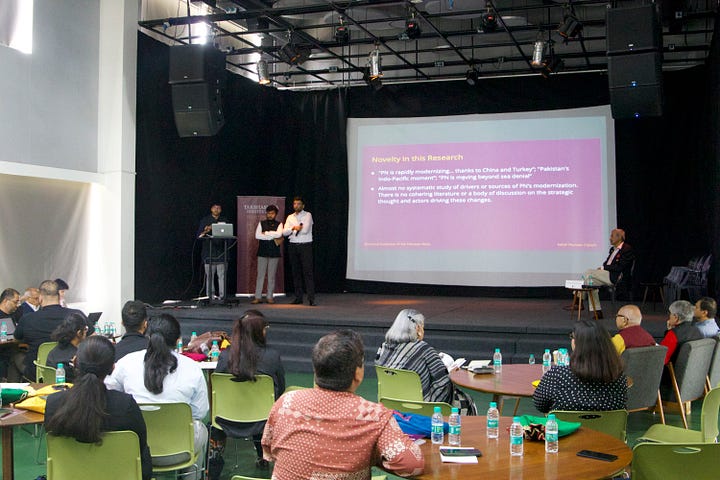

Bashir Ali Abbas and Aditya Ramanathan spoke about the doctrinal and operational evolution of the Pakistan Navy, while Sneha Sengupta and Satya Sahu discussed a paper on Pakistan's quest for data sovereignty and its geopolitical salience.
In the Society and Culture theme, Palak Singh and Bashir Abbas discussed their views and study on the politics of women's representation in the Pakistani popular media. Anakha S Thampy and Maria Sony, along with Amit Kumar spoke about Pakistan’s robust start-up culture and whether it is a panacea for youth radicalization in the country.
In another fascinating paper titled ‘Representation of transgenders or hijras in popular culture in Pakistan’, Dr Kaustav Padmapati & Dr Roshni Sengupta, along with Aishwarya S Verma explored a critical study of the burning issue of inclusion and acceptance.
In the Contemporary Law and Political Economy theme, the first paper discussed was ‘Indus Water Treaty: India, Pakistan, and International Law’ by Arpan Chakravarty, along with Anushka Saxena.
Nachiketa Thaker and Roshni Sengupta spoke about skilled emigration and its positive impact on Pakistan’s multidimensional poverty – including a spurt in innovation and capacity building. But something that has also led to a negative impact on the drain of human capital and resources.
Close on the heels of the Network for Advanced Study of China (NASC) Fellowship workshop, the Pakistani discussion elicited equally if not more passionate viewpoints and policy ideas.
You had to be there.
An Open Mic for Policy Ideas on November 8
Jonathan Kim is not a comic; he is a tech writer who used to be a film critic. Kim, who often blogs on Medium, wrote this wonderfully perceptive piece on Open Mics and stand-up comics. We are not paraphrasing him, because that would be a grave injustice to such deep words about people that make us laugh.
“Stand-up comedy starts at open mics. Open mics are where aspiring comedians first go to see if they can be comedians, and it often isn’t pretty (or funny). Just because you can make your friends and coworkers laugh doesn’t at all mean you will naturally, quickly, or successfully be a decent comedian, let alone a paid one. Add to that the cavalcade of weirdos, eccentrics, lost causes, over-sharers, loudmouths, misogynists, and sad sacks that often frequent open mics, and it can be downright scary. However, open mics can also be wonderful places where comedians can meet like-minded people and form friendships that can last a lifetime. It’s where you can see comics who you can’t believe aren’t famous, and sometimes see established comics working on material before taking it to paying audiences. And if you want to be a stand-up comedian, open mics are where you absolutely must start if you ever expect anyone to eventually pay you for performing. Because unlike most other artforms like writing, dancing, painting, or playing a musical instrument, stand-up comedy is not something you can practice at home on your own. The only way to know what is and isn’t working is through the real-time feedback of actual people laughing, listening, groaning, or glaring in stony silence. There is simply no other way.”
You can use comedy if you’d like to, but at the OpenTakshashila OpenMic on November 8, it’s all about policy and ideas that can seed transformation.
Anybody — yes, anybody — can present their ideas on Wednesday, November 8 between 7 pm and 8 pm, and we will have a discussion immediately afterward. Send your ideas here, and someone from Takshashila will reach out to you.
Here’s to more OpenMics at OpenTakshashila!
Another Scintillating All Things Policy episode
Takshashila’s Bharath Reddy and Satya Sahu sat down with Vishnu Rajeev, investment principal of VC firm Speciale Invest, to talk about the deep tech industry and why he's so excited about its future in India. Deep technologies involve scientific and technological advancements that serve as the foundation for innovative products or services.
You can listen to the episode here.
The Quad Needs To Work With Other Groups. ASEAN is the Place to Start
Takshashila’s Bharat Sharma feels that the members of the Quad — the US, Australia, Japan, and India — have each ramped up cooperation and relations with ASEAN countries. In September, Japan became the last of the quartet to upgrade its relationship with ASEAN to the level of a "comprehensive strategic partnership," and each of the four held a separate meeting with ASEAN leaders that month. Even India, which has had the weakest institutional connections with Southeast Asian governments, has markedly increased collaborative efforts in various areas under Prime Minister Narendra Modi's "Act East" policy. In May, New Delhi conducted joint maritime exercises with ASEAN in the South China Sea.
So, what does this mean? And what should the Quad members do to get closer to ASEAN in a meaningful way?
To quote Bharat:
“The growing prominence of the Quad may also be giving some in ASEAN insecurity about whether the new grouping could threaten the 10-nation bloc's central role in Southeast Asian affairs and its prominence in the Indo-Pacific region more broadly, particularly given the Quad's focus on security matters.
Yet there would seem to be little reason for ASEAN to worry too much. India's aversion to military alliances is bound to limit Quad moves into combat-related cooperation. Differences in threat perception about China are also likely to be a hindrance.
To avoid potential misunderstandings, the Quad needs to reassure ASEAN about its plans and goals and stay in dialogue about how geopolitical events are shaping its strategic outlook. Fundamentally, a proper alignment of interests already exists between ASEAN and the Quad, especially given how the latter talks of Southeast Asia in terms of areas such as infrastructure, supply chains, and health.”
You can read the op-ed here.
And What About Maldives?
So, here’s the thing: India’s partnership with the Maldives is well-known and spans numerous areas such as development, defence, and security. India plays a key role in the Maldives’ security and has a burgeoning defence engagement with the island nation. China’s partnership with the Maldives has come to acquire numerous dimensions, with a strong trade and development relationship underwriting it.
The Maldivian presidential election last month culminated in a victory for Mohamed Muizzu and a loss for incumbent president Ibrahim Solih. The election was keenly watched in New Delhi and Beijing. How India and China see each other in strategic spaces such as the Maldives determines the nature of their competition in Small Island Developing States (SIDS) in the Indian Ocean Region (IOR).
Bharat Sharma is back with his perceptive piece on this important nation in the Indian Ocean. You can read it here.
Wait, there’s more!
Lt. Gen. Prakash Menon, Head of Strategic Studies at Takshashila, chaired a session as part of the Maiden Chanakya Defence Dialogue at Delhi on 2nd and 3rd November. The dialogue was steered by the Indian Army and inaugurated by the Vice President of India.
Takshashila alum and well-known journalist, podcaster and founder of The Pickle Jar Vasanthi Hariprakash hosted a small, but focused group at The Fat Labrador Café in Pune where she showcased her work on inspirational women from across India.
Last month, we wrote about Takshashila co-founder and director Nitin Pai’s book tour to Goa. Well, the video is out, and you can watch it here.
Start Your Public Policy Journey With Us

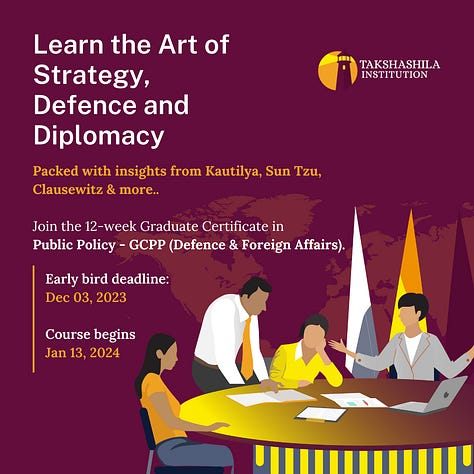

That’s all from us this week. Take care and see you next!




